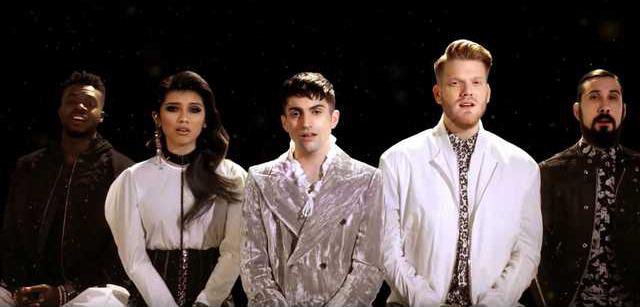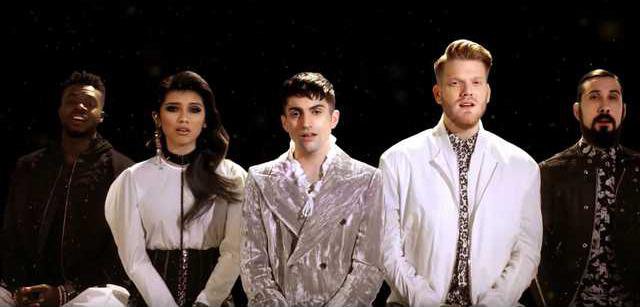Pentatonix released their latest music video, a cover of Elvis classic, Cant Help Falling in Love, on Monday.
The video is an installment of a series of videos for their new album, Vol. 4 Classics, which includes covers of other timeless works such as Bohemian Rhapsody, Over the Rainbow, Imagine and Take on Me.
Pentatonix gained popularity after their viral Hallelujah cover gained almost 155 million views and their Christmas albums took off last year. Released Monday, this cover video is also gaining traction quickly and is currently trending on YouTube.
This Cant Help Falling in Love rendition is a slow, harmony-driven piece that focuses on the vocals of the different members. It does not include the beatboxing and vocal scat that has become a customary part of the Pentatonix sound.
Watch the video here.
The video is an installment of a series of videos for their new album, Vol. 4 Classics, which includes covers of other timeless works such as Bohemian Rhapsody, Over the Rainbow, Imagine and Take on Me.
Pentatonix gained popularity after their viral Hallelujah cover gained almost 155 million views and their Christmas albums took off last year. Released Monday, this cover video is also gaining traction quickly and is currently trending on YouTube.
This Cant Help Falling in Love rendition is a slow, harmony-driven piece that focuses on the vocals of the different members. It does not include the beatboxing and vocal scat that has become a customary part of the Pentatonix sound.
Watch the video here.








